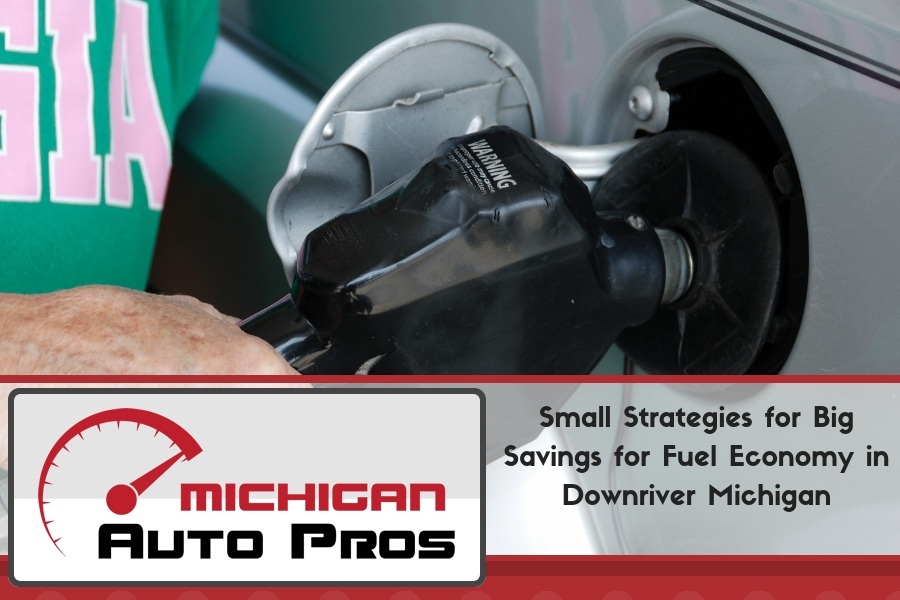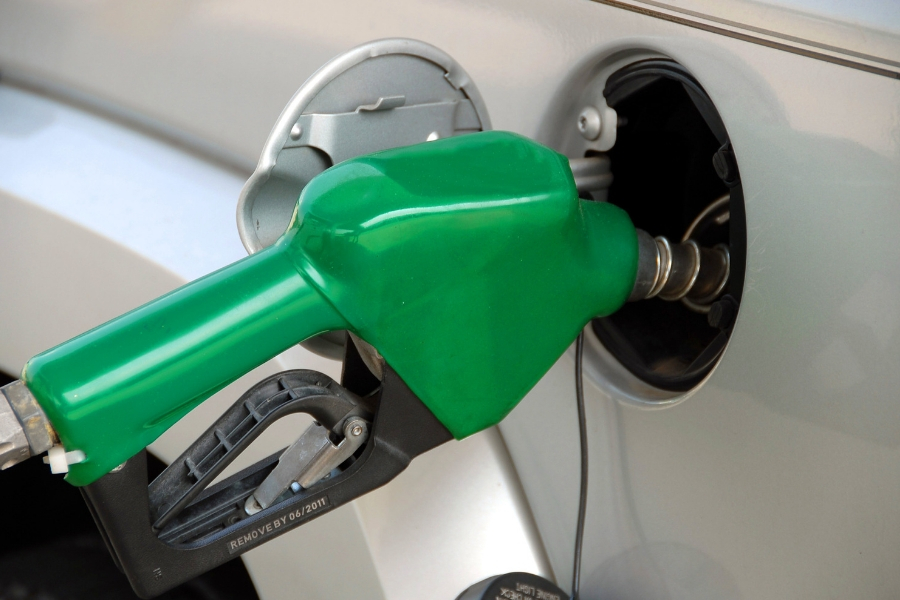For most people, driving is a fact of life. With driving comes car maintenance. The cost of routine vehicle maintenance varies tremendously between makes and models but one thing that remains largely the same is the cost of fuel. Whether you drive a Ford or a Ferrari, your car needs fuel. And while some vehicles might require premium (more on that shortly), the cost of filling up for the road ahead is, per gallon, generally the same regardless. The costs of living are ever increasing and being mindful of your fuel expenses is an excellent way to stash some extra cash. Read on to better understand fuel economy and how to optimize your vehicle and save at the pump.
Small Strategies for Big Savings for Fuel Economy in Downriver Michigan
This may seem like a silly question at a glance, but it’s important to understand that fuel economy is more than a fixed number used to sell vehicles. Suppose a manufacturer claims their vehicle gets 30 miles to the gallon. It would be reasonable to assume that for every 30 miles traveled, one gallon of gas is burned. And while this may be true under optimum conditions, there are a tremendous number of variables that need to be accounted for should you wish to enjoy manufacture-claimed figures. Generally speaking, the larger the engine and the more horsepower a car makes, the worse the fuel economy is going to be. But two exact same makes and models can have vastly different fuel economy figures, and there are several reasons for this. Staying up on routine maintenance is an excellent place to start should you wish to achieve maximum fuel efficiency.
Burn Rubber
…And you’ll also burn through a tank in no time. Frequent visual inspections of your tires, as well as keeping a close eye on tire pressure is an important part of any fuel consumption strategy. Most cars made in the last decade or so feature an on-board tire pressure monitoring system, which displays a light when pressure is low. This monitoring system is mandated by the EPA on all newly produced vehicles as an effort to get drivers to be more mindful of tire pressure. Simply put, a tire low on air will require more effort to turn, which requires more gasoline to achieve, and increased pollution is a result. Properly inflated tires in good condition will pay dividends at the pump.

Remove Excess Weight
There are two ways to make a car faster: more power, and less weight. The latter is generally free, and removing excess weight will not only improve performance, but also fuel economy. Ditching unused roof racks and last winter’s sandbags all help to increase fuel economy – especially in the case of the roof rack, which not only adds weight, but increases drag. The wind resistance created by external accessories creates additional work for the engine, which as you’ve probably guessed, uses more fuel. Shedding unnecessary weight from your vehicle is an excellent strategy for reducing fuel consumption.
A Premium Not Worth Paying
If you have a habit of filling up with premium fuel despite there being no indication that you need to, stop right now. There’s a good chance you’re throwing your money away. Gasoline labeled as “premium” has a higher-octane rating than “regular”, and most people associate “high octane” with “high performance.” The chemistry of modern fuel is complex and beyond the scope of this article. However, as a very loose definition; octane refers to a fuel’s resistance to detonation. As the engine’s piston moves upwards in the cylinder, it creates a compression before finally reaching the top where the air and fuel mixture is fully compressed and ready to be ignited by the spark plug. This compression happens rapidly, and under pressure, molecules colliding create heat. The explosive nature of gasoline is well-documented, and detonation refers to the fuel igniting in the cylinder before it’s supposed to. Heat created by high compression can cause this, and high-performance engines generally operate at very high compression. Increasing the fuel’s octane rating helps it resist igniting prematurely under the pressures created inside high-performance engines. So, while there is a correlation between high-performance and high-octane, simply adding high-octane fuel (i.e.; premium) will not enhance your car’s performance in any way. Unless your car explicitly states that it requires premium (often inside the gas cap door, or owner’s manual) stick with the standard stuff, and your credit card with thank you.
Slow It Down
Unsurprisingly, higher speeds demand more fuel. If you have a habit of dominating the left lane, or see every merge as an impromptu drag race, chances are your fuel economy is suffering. Hard acceleration consumes fuel at an exorbitant rate, and in many instances, you’d need to more than double the speed limit for a prolonged period to shave any meaningful time off your commute. If you’re trying to reduce your fuel consumption, it pays to take a hard look at how you drive. Moving with the flow of traffic and using cruise control whenever possible will put you in the fast lane to big savings.
Sweat the small stuff
Small areas; often the focus of routine maintenance, can negatively impact fuel economy if neglected. If your spark plugs have seen an excess of 20,000 miles, it might be time for a change. Ensuring your oil filter is changed as needed will reduce the engine’s effort to flow oil and lower its fuel consumption in the process. When changing the oil, be sure to use only the specified type. It’s been shown that using oil of a weight higher than specified can increase fuel consumption by as much as two percent. Anything that puts extra strain on your engine will negatively impact fuel economy. If you can go without using air conditioning on all but the hottest days, you’ll reap the benefits at the pump. Periodically, inspect your battery’s terminals. If they’re dirty, clean them or replace as needed. Poor electrical connections can place undue stress on the alternator which is powered by – you guessed it – the engine.
If you’re looking to improve your fuel economy, the friendly, knowledgeable technicians at Good Care Auto can work with you to ensure your vehicle is up to spec and help you save at the pump. They’re confident that any vehicle will experience better gas mileage after proper servicing. From tires to transmissions, Good Care Auto is equipped with the latest equipment and industry certifications. Call today at (734) 285-1188 and book an appointment today!
